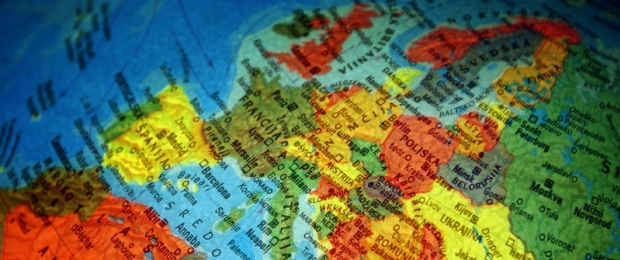
Where are the Eastern hordes?
Readers of best-selling British newspapers must have the strong impression that the EU's eastward enlargement is primarily about migration. Britain has 'an open door to welfare tourists', according to the Daily Mail, which claimed that '... as many as 100,000 [Czech] gipsies were reported to be ready to come here once they became EU citizens'. Then came the health warnings: 'Sick migrants 'will swamp our wards',' warned The Sun. The Sun also solicited the following opinion from its Page Three girl: 'The government should do something to protect the health service from these freeloaders.'
For the europhobic sections of the British press, the campaign to stop the 'eastern hordes' was the perfect issue. They could hit their three favourite targets - European integration, migrants and the Roma - in one story. The broadcast media - even the BBC - followed the tabloid agenda to a large extent. In the weeks prior to May 1st 2004, press reports on enlargement focused on how many people might move to the UK, rather than talking about the future of the EU or what the new countries might bring to the club. Then, suddenly, it all stopped. The journalists on 'horde watch' at the port of Dover, Heathrow airport and Victoria coach station on May 1st could not find tens of thousands of East Europeans queuing up to claim social security. So why didn't the East Europeans turn up?
One reason is that large numbers of people leave their home countries only in cases of war or major political upheaval. Accession to the EU had the opposite effect, because it gave people hope that prospects for growth, employment and education would improve in their own countries.
Second, people tend to move to seek work, not to claim welfare benefits. Although British social security benefits may be higher than wages in some parts of Central and Eastern Europe, the cost of living in the UK is much higher too. For young people who want to build up their savings and English language skills, it may make sense to work hard for a few years in Britain. But the cost-benefit calculation for whole families to move is much more uncertain.
Third, many of the Central and East Europeans seeking employment in Britain are already here. The main effect of May 1st was not to lure in huge numbers of new job-seekers, but to legalise the status of the many Central and East Europeans already hard at work in the UK's catering, childcare and building industries. The labour shortages in the booming economy of South-East England have attracted many workers from abroad. More will undoubtedly move westwards over the next few years. Academics have used a variety of methods to predict migration flows, but most agree that the influx will be a trickle, not a wave. According to a study published last year by the German Institute for Economic Research, over the next 30 years, the number of Central and East Europeans permanently resident in the UK is likely to rise from about 50,000 to 180,000 - a tiny number in a labour market of 28 million. Most migrants from the region will come and work for a few years, but then go home again, not settle permanently.
Britain and Ireland were the only two old members of the EU which opened their labour markets to workers from the new member-states from the start - although the UK has restricted access to some welfare benefits. Sweden reluctantly followed, after the country's parliament rejected a government proposal to require work permits for easterners. These governments have followed the right policy. In countries where Central and East Europeans can work without permits, they are more likely to register and pay tax and social security. They are less vulnerable to exploitation by unscrupulous employers and gangmasters because they will qualify for the minimum wage, and they can complain if health and safety standards are inadequate.
But the British government communicated its policy extremely badly. It allowed the press to stoke unwarranted public fears by reacting slowly to the scare stories. The new members' image has taken a battering in the UK as the eurosceptic newspapers competed to caricature easterners as disease-ridden welfare-scroungers. That press coverage is an embarrassment in Britain's relations with the new members of the EU, undoing years of careful diplomatic work promoting the UK as a champion of enlargement. And it has given the British public a completely false impression about what the EU's enlargement is all about. Yet again, a great success story of European integration has been portrayed as a threat to the UK.
Heather Grabbe was deputy director of the CER (2000-2004).
